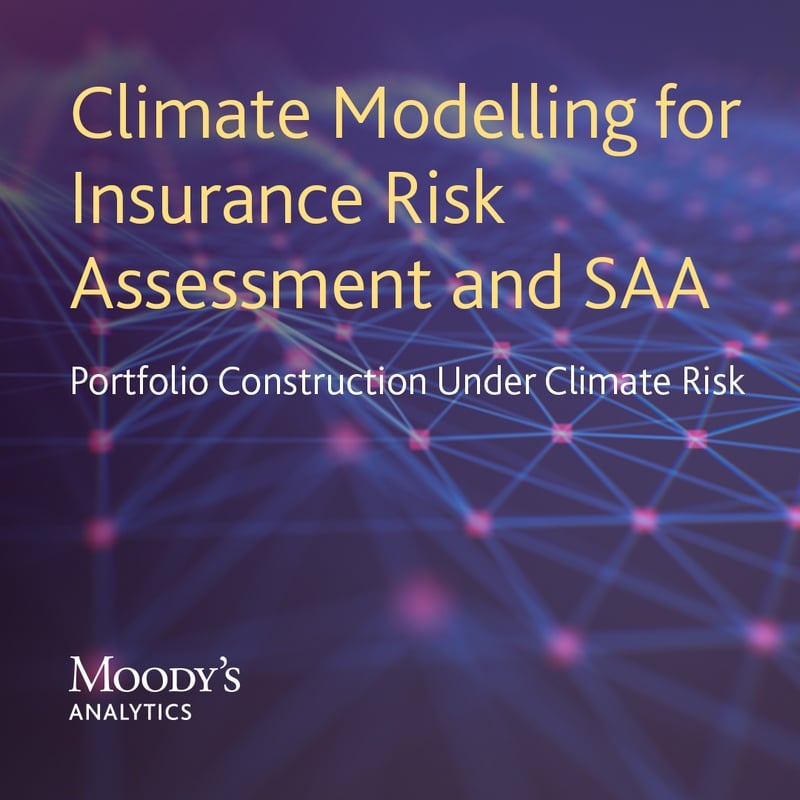Will Climate Risk Affect Your Ability To Get A Mortgage?

Table of Contents
How Lenders Are Assessing Climate Risk
Lenders are increasingly incorporating climate risk into their mortgage underwriting processes. This means a more rigorous evaluation of properties, considering factors beyond traditional credit scores and appraisals.
Increased Scrutiny of Flood Zones and High-Risk Areas
Lenders are utilizing sophisticated tools to assess a property's vulnerability to climate-related events. This includes:
- FEMA flood maps: These maps illustrate areas with a high probability of flooding, significantly influencing mortgage eligibility. Properties in high-risk flood zones often face stricter lending criteria, higher interest rates, or even outright denial of mortgages.
- Climate risk scores from rating agencies: Companies are developing climate risk scores that provide a comprehensive assessment of a property’s vulnerability to various climate hazards. These scores are becoming increasingly influential in lender decision-making.
- Increased premiums or denial of mortgages in high-risk areas are becoming increasingly common as lenders seek to minimize their exposure to climate-related financial losses. This is particularly true for properties repeatedly affected by flooding or wildfires.
The Growing Importance of Property-Specific Risk Assessments
Beyond broad geographic risk assessments, lenders are increasingly commissioning detailed property-level evaluations. These assessments factor in:
- Proximity to waterways: The closer a property is to rivers, lakes, or oceans, the higher its flood risk.
- Wildfire susceptibility: Properties in areas with dry vegetation and a history of wildfires face increased scrutiny. Factors like proximity to forested areas and local fire suppression capabilities are considered.
- Building materials: The construction materials used, and the structural integrity of the building, are also important factors influencing climate risk assessment.
- Climate-related disclosures are becoming increasingly important. Accurate disclosures of known risks are crucial for securing mortgage approval and avoiding future legal complications.
Impact on Insurance Availability and Costs
The availability and cost of insurance are intrinsically linked to climate risk and mortgage eligibility.
- Lenders often require proof of insurance as a condition for mortgage approval. Securing insurance for properties in high-risk areas can be challenging and expensive.
- Rising insurance premiums, directly resulting from increased climate-related damage claims, can impact the affordability of a mortgage and potentially lead to loan denial. Lenders will carefully consider these premiums when assessing the overall risk.
Types of Properties Most Affected by Climate Risk
Certain types of properties are inherently more vulnerable to the impacts of climate change, making them higher-risk propositions for lenders.
Coastal Properties and Floodplains
Coastal properties and those located in floodplains face significant climate risks:
- Rising sea levels and increased flood frequency pose substantial threats to these properties, leading to increased damage and devaluation.
- Building codes and regulations in these high-risk zones are becoming stricter, reflecting the growing awareness of climate risks. Many lenders are reluctant to finance properties that don't meet these stringent standards.
Properties Prone to Wildfires
Properties situated in wildfire-prone areas are increasingly subject to heightened scrutiny:
- The frequency and intensity of wildfires are increasing, leading to significant property damage and loss of life. This translates to higher risk for lenders.
- Defensible space (the area around a property that is cleared of flammable materials) and fire-resistant building materials are critical factors influencing mortgage approval for properties in high-risk fire areas.
Properties Vulnerable to Extreme Weather Events
Properties vulnerable to other extreme weather events, such as hurricanes, heat waves, and droughts, also face increased climate risk:
- Hurricanes can cause devastating wind and flood damage, while heat waves can strain infrastructure and lead to power outages. Droughts can affect water availability and property values.
- Building codes and resilience measures are becoming more important in mitigating these risks, with lenders favoring properties that demonstrate a commitment to climate resilience.
Steps to Mitigate Climate Risk and Improve Mortgage Chances
Proactive steps can significantly improve your chances of securing a mortgage, even in climate-vulnerable areas.
Property Improvements and Upgrades
Investing in home improvements can significantly reduce climate risks:
- Flood mitigation measures, such as elevating the foundation or installing flood barriers, can demonstrably lower the risk of flood damage.
- Fire-resistant landscaping and the installation of fire-resistant roofing materials can protect properties from wildfires.
- Government incentives and subsidies are sometimes available for these upgrades, making them more cost-effective.
Disclosure and Transparency
Full and accurate disclosure of known climate risks is crucial:
- Proactively addressing any climate-related concerns with your lender demonstrates transparency and responsibility.
- Non-disclosure can have serious legal and ethical implications, potentially affecting mortgage approval and creating future liabilities.
Seeking Advice from Experts
Seeking advice from professionals is highly recommended:
- Mortgage brokers specializing in climate risk can help navigate the complexities of the lending process.
- Environmental risk assessors can provide a detailed assessment of a property's vulnerability to climate-related hazards. Consulting these experts early in the home-buying process is highly advisable.
Conclusion
Understanding how lenders assess climate risk, identifying properties most vulnerable, and taking proactive steps to mitigate these risks are crucial for securing a mortgage in today's changing environment. From increased scrutiny of flood zones and wildfire-prone areas to the growing importance of property-specific risk assessments, climate change is reshaping the mortgage industry. Understanding climate risk is crucial when applying for a mortgage. Don't let climate change affect your dream home; take steps to mitigate climate risk and secure your mortgage today! Proactive planning and informed decisions will significantly improve your chances of obtaining a climate risk mortgage and owning the home of your dreams.

Featured Posts
-
 Kaellmanin Nousu Huuhkajissa Kenttaesuoritus Ja Sen Ulkopuolinen Kehitys
May 21, 2025
Kaellmanin Nousu Huuhkajissa Kenttaesuoritus Ja Sen Ulkopuolinen Kehitys
May 21, 2025 -
 John Cena Vs Randy Orton Feud Brewing Plus Bayleys Injury Update
May 21, 2025
John Cena Vs Randy Orton Feud Brewing Plus Bayleys Injury Update
May 21, 2025 -
 Understanding Ing Groups 2024 Performance A Look At The Form 20 F
May 21, 2025
Understanding Ing Groups 2024 Performance A Look At The Form 20 F
May 21, 2025 -
 Sumergete En El Misterio 5 Podcasts De Suspenso Y Terror
May 21, 2025
Sumergete En El Misterio 5 Podcasts De Suspenso Y Terror
May 21, 2025 -
 Big Bear Ai Stock Buy Or Sell
May 21, 2025
Big Bear Ai Stock Buy Or Sell
May 21, 2025
Latest Posts
-
 Hinchcliffes Wwe Appearance A Behind The Scenes Report
May 21, 2025
Hinchcliffes Wwe Appearance A Behind The Scenes Report
May 21, 2025 -
 Rollins And Breakkers Domination Of Sami Zayn Wwe Raw Highlights
May 21, 2025
Rollins And Breakkers Domination Of Sami Zayn Wwe Raw Highlights
May 21, 2025 -
 Manchester Uniteds Rashford Bags Brace Against Aston Villa In Fa Cup Victory
May 21, 2025
Manchester Uniteds Rashford Bags Brace Against Aston Villa In Fa Cup Victory
May 21, 2025 -
 Sveriges Kamp Mot Malta Jacob Friis Inledning Som Foerbundskapten
May 21, 2025
Sveriges Kamp Mot Malta Jacob Friis Inledning Som Foerbundskapten
May 21, 2025 -
 Rashfords Double Sends Preston Packing Aston Villa Triumph In Fa Cup
May 21, 2025
Rashfords Double Sends Preston Packing Aston Villa Triumph In Fa Cup
May 21, 2025
